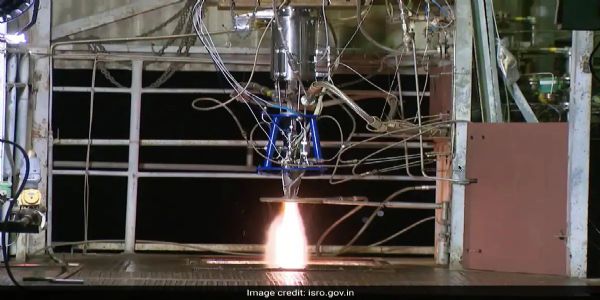Indian Private Space company Skyroot’s Rocket engine tested successfully at ISRO facility
Total Views |
Skyroot, a Hyderabad-based space start-up, successfully tested a rocket engine at the Indian Space Research Organisation's Propulsion Complex (IPRC) in Mahendragiri, Tamil Nadu.

The Raman-II engine, designed by Skyroot to generate 820 Newton (Sea Level) and 1,460 Newton (Vacuum) thrust with a nominal chamber pressure of 8.5 bar absolute, was tested on Friday in the IPRC's Liquid Thruster Test Facility (LTTF), the Bengaluru-headquartered ISRO said in a statement on Saturday.
Mono Methyl Hydrazine and Nitrogen Tetroxide are used as propellants in the regeneratively cooled engine, which was created using additive manufacturing techniques.
"The 10-second duration test achieved the expected performance in terms of start transient, steady state, and shut-off," according to the report.
Skyroot plans to include the Raman-II engine onto the fourth stage of its Vikram-I launch vehicle.
"The test facility systems demonstrated normal performance during the test, meeting engine inlet conditions at T0," according to the statement.
It was also reported that the instrumentation equipment operated as predicted, confirming the precision and dependability of the test data.
A number of additional experiments are planned in the future to confirm and enhance the Raman-II engine's capabilities.

